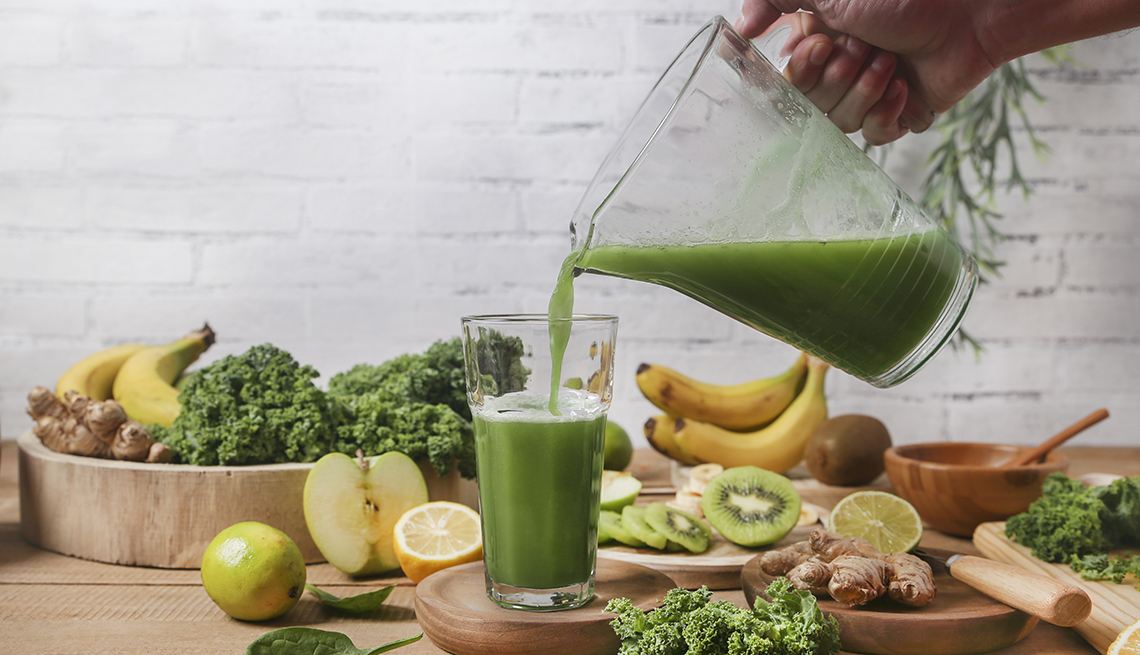AARP Hearing Center
"Pervasive” is the word Stacy Kennedy uses to describe the topic of detoxing in today's health and wellness culture.
Drinks and pills that promise to rid the body of unwanted toxins flood the internet, and books that vow to flush fat and a lifetime of bad habits fill store shelves. In some cities, juice bars are as common as coffee shops. And all of the hype has made its way into health care.
Kennedy, a nutritionist at the Dana-Farber Cancer Institute in Boston, routinely fields questions on whether “detoxing” really works, especially when it comes to preventing or defeating a serious illness such as cancer.
The answer is both yes and no, Kennedy says. “Our bodies are always detoxing — working to keep us healthy and working to keep our systems running efficiently. So detox is something that's really happening all the time.”
And while there's little proof that promoted elixirs and supplements have a magical cleansing effect, a diet packed with nutrient-dense foods can facilitate the body's natural detox process.
Dark leafy greens, such as spinach and kale, make Kennedy's superfood list. A number of fall and winter vegetables, including carrots, sweet potatoes and squash, play powerful roles in protecting the immune system.
Cruciferous vegetables, like broccoli, bok choy and cauliflower, contain compounds that “help our liver turn on more enzymes for natural detoxification,” she says. And garlic, onions, scallions and leeks “have nutrients that we know are really helpful for our immune system.”
For expert tips to help feel your best, get AARP’s monthly Health newsletter.
The key, however, is not to eat these ingredients in isolation. A diet filled with processed foods, for example, can't be offset by the occasional bowl of blueberries or 10 days of leafy greens.
"It's all about eating a healthy, balanced diet most of the time” and eating a variety of plant-based, nutrient-dense foods, Kennedy says.
So if you want to splurge on a green juice, go for it. But that doesn't mean you can skip out on the other four recommended servings of fruits and vegetables. Repeating healthy eating habits is “really how you help to give your body the nourishment and the nutrients that our immune system needs to really do its job at its peak,” she says.
And if you have any questions on how to fine-tune your diet to support a particular health condition, ask your health care provider, especially if you are undergoing treatment or recovering from a serious illness.
"Don't feel shy. Even if it sounds kind of out there, we've heard it all,” she says. “Bring those questions so we can talk it out and make sure you feel like you're doing everything you can to support yourself.”



































































